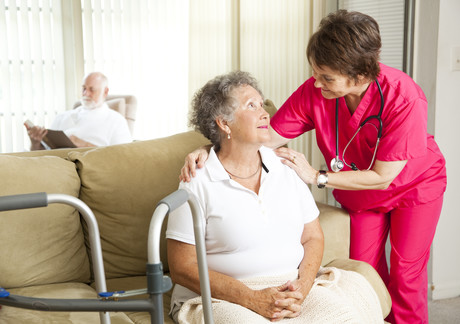Supporting aged-care communication challenges

It is increasingly challenging for aged-care workers, many of whom come from diverse linguistic and cultural backgrounds, to support clients with a range of complex behaviours or unmet needs such as those associated with dementia, especially when communication is occurring across languages and cultures.
Now, researchers from the University of South Australia (UniSA) have developed professional learning resources and practical strategies that will enhance the capacity of supervisory and direct care staff to manage this communication in the context of complex diversity.
“Of particular concern in contexts of linguistic and cultural diversity is understanding how to communicate care and safety around challenging behaviours, so our project took an intercultural approach to the development and design of the resources,” said Associate Professor Angela Scarino, a co-author on the project.
The project was funded by a SafeWork SA Innovative Practice grant and conducted by UniSA’s Research Centre for Languages and Cultures project team, in collaboration with Helping Hand Aged Care and Southern Cross Care. It was launched last month by SA Minister for Ageing and Multicultural Affairs Zoe Bettison.
“Collaborating closely at all stages with management and staff at Helping Hand and Southern Cross Care and with the project advisory group, we analysed documentation of incident reports and conducted focus group discussions with trainers, nurses and care workers to jointly identify the challenges and possibilities for communicating safety and care,” said Associate Professor Scarino.
“We then developed a set of five professional learning modules which include videos in which nurses and care workers themselves talk about how they communicate safety and care — with a focus on the diverse perspectives and ways of communicating and caring that people bring from their different language and cultural backgrounds.
“Understanding requires us to bridge our own language and culture in relation to the languages and cultures of others, because being ‘at home’ in one’s own language and culture is a characteristic of all of us.”
The resources have been trialled in the two industry sites with trainers, nurses and care workers and have since been taken up in the two industry partner organisations. Helping Hand Director of Research and Development Megan Corlis said feedback from staff has been very positive.
“One of our trainers said they had never seen staff as connected with behaviour and described the resources as critical in encouraging relationship-centred care which then encourages better care and reduces ‘triggers’,” she said.
Southern Cross Care Director of Workforce Steve McCallum agreed, saying the resources are a great way to build collective intelligence across staff and customers.
“The discussions and activities included in these resources are great for broadening people’s perspectives and we found they fostered the development of a range of expertise,” he said.
The modules are designed for flexible delivery, on- or offline, and incorporate a four-segment structure that can be adapted to the needs and interests of participants and the professional development time available. Each module builds on the other, focusing on a particular aspect of practice while maintaining a common orientation relevant to workers at all levels of the organisation: carers, enrolled nurses, registered nurses, trainers and managers.
The report ‘Communicating safety and care in the context of linguistic and cultural diversity in aged care: an intercultural approach to training’ is available here. The five modules are available here.
Nominations open for 2026 HESTA Australian Nursing & Midwifery Awards
Nominations have opened for the 2026 HESTA Australian Nursing & Midwifery Awards, set...
Two healthcare student spotlights this National Skills Week
This National Skills Week (25–31 August), we spotlight two NSW TAFE students and graduates...
Group Captain Kath Stein FACN GAICD becomes ACN president
The Australian College of Nursing has appointed its new president, Group Captain Kath Stein FACN...




![[New Zealand] Transform from Security Awareness to a Security Culture: A Vital Shift for SMB Healthcare — Webinar](https://d1v1e13ebw3o15.cloudfront.net/data/89856/wfmedia_thumb/..jpg)
![[Australia] Transform from Security Awareness to a Security Culture: A Vital Shift for SMB Healthcare — Webinar](https://d1v1e13ebw3o15.cloudfront.net/data/89855/wfmedia_thumb/..jpg)




